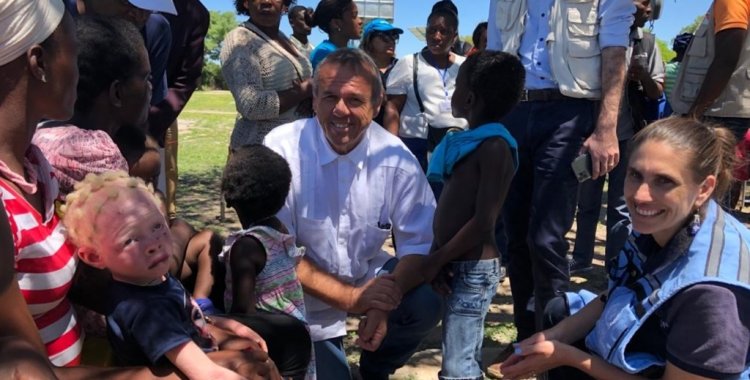Pier Paolo Balladelli, who ends his mandate in Angola on 5 August, will return to his area of specialty, this time in Venezuela, integrating the Pan American Health Organization, an international body that is part of the World Health Organization ( WHO).
The 62-year-old Italian, a specialist doctor in Public Health, who spent nine years in the country spread over two periods (from 2000 to 2004 as a WHO representative and from 2015 in his current position) ends the mission with "positive feelings" regarding to the territory and its people and believes that Angola may be "tomorrow the engine of the African continent".
In an interview with Lusa, he described how priorities have changed, recognizing that there is still much to do for the country to benefit from its full potential.
If during his first mission "the great concern was still the end of the war and cooperation had a strong humanitarian component", from 2002 onwards the reconstruction of the country began, centered on the reestablishment of the means of communication, an aspect essentially " physics".
Right now, "the big challenge is to carry out a cultural and economic reconstruction", says Balladelli, declaring himself "satisfied" with what has been achieved.
Having worked with two executives - the one led by José Eduardo dos Santos, who remained in power for almost 40 years and the current government of João Lourenço, who took over the presidency in September 2017 - the UN official highlights the "great change of focus and culture "in the current administration.
"The previous focus was more on infrastructure, the current government is more on human capital," says Balladelli, stressing that this is "the most important force in a country".
United Nations programs have also kept pace with changing priorities. "The current programs are very centered on communities and families, a new organization of resources aimed at people. We are working to increase the professional capacity and qualification of the youngest layers", exemplified the same responsible.
For Balladelli, it is important to understand that the United Nations "has more potential than is currently being used in the country", adding that financial issues are not at stake.
And he makes some recommendations: "It takes technical capacity to improve State management, create more transparency, create more proximity between the population and those who make decisions, use the experience of others in the country to see how they solved certain difficulties", in an exercise learning best practices, in which it considers that the United Nations could also go further, although that purpose is "more clarified" in the current framework of cooperation.
"The role of the United Nations is not a financial one, for that we have the banks, the World Bank, etc. The United Nations is 'know how', they are knowledge to be able to make analyzes and define the correct strategies to be implemented", considers Balladelli, describing the implementation as the main challenge.
"We have taken a long time to prepare policies, define strategies, improve standards and legislation, but the fundamental point is implementation, only then can there be changes in the life and well-being of the population," he continued, saying that any errors must be corrected during the phase. implementation, because it is necessary to "do, not wait".
As for his next mission in Venezuela, he believes that "it will be a very interesting experience" to which he will bring the contribution of a senior staff with an international experience of almost 37 years, on four continents, which started in Ecuador.
After leaving Angola, the expert will also pass through Italy, where he will have to comply with quarantine and wait for the first humanitarian flight that will take him to Caracas, hoping to reach the Venezuelan capital "around the 15th of August".







